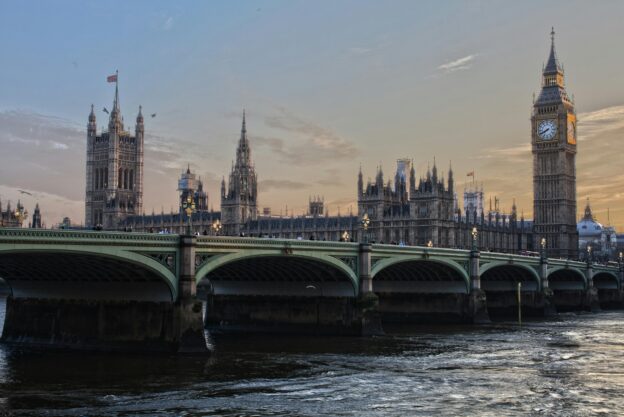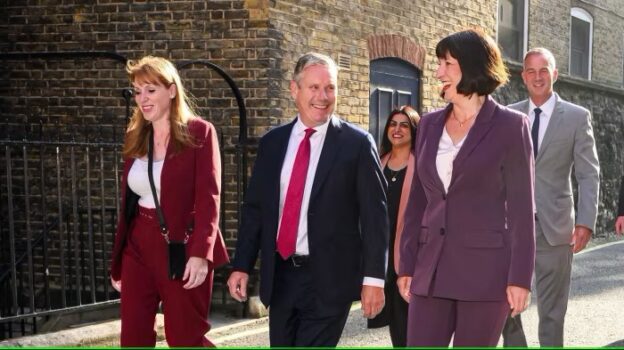Mark Linton is a public affairs expert working with clients on US regulatory forecasting and scenario planning. He is a former senior appointee in the Obama Administration and a CoFounder of Hummingbird Advantage, a national public affairs consulting firm working with startups, investors, and established brands to help them win on their top causes.
Q: If you were a betting person, who would win the US election tomorrow?
A: I would rather be Kamala Harris than Donald Trump. The Vice President has a higher overall ceiling of support among the electorate and a better field operation (to contact voters and get them to the polls). Having said that, the race is exceedingly close and it’s very possible Donald Trump could still win.
Q: Which campaign do you think has received the largest donations from investors?
A: America’s lax campaign finance laws make it incredibly hard to know this, given the proliferation of spending by outside political action committees (PACs) and interest groups, many of which have few disclosure requirements. Donald Trump has received a significant amount of dark money support including from major VC players who back crypto.
Q: What does each candidate mean for international investment into the US?
A: The care economy, healthcare: If Kamala Harris is elected and Democrats control both chambers of Congress, we would expect to see a concerted push to enact paid family and medical leave, an area where the U.S. lags compared to most European countries. Vice President Harris has also proposed expanding subsidies to help cover health care costs and in general strengthening the Affordable Care Act.
Renewable Energy: Even if Donald Trump is elected, it will be hard – and politically unpopular – to claw back the billions of dollars that have flowed to states for renewables and climate adaptation through the recently passed infrastructure law (the Inflation Reduction Act). We’d expect to continue to see interest in clean energy, upgrades to the nation’s grid, and a focus on new technologies ranging from microgrids to carbon capture and removal.
Q: What is the most favourable election outcome for US investment into the UK?
A: Kamala Harris will bring a high degree of stability and competence to the White House. For that reason, many business leaders have privately signalled their preference for her as America’s next president. By contrast, most analysts predict a period of heightened political instability at home and abroad if Donald Trump is elected. He has pledged to start a trade war and weaken American alliances e.g., NATO, that undergird much of the western international economic order. A second Trump presidency would also lead to sustained domestic unrest, including potentially general strikes depending on the severity and reach of any unconstitutional orders he gives to the military and federal law enforcement agencies.
Q: Top three sectors which will benefit from Trump and why?
A: This depends on his early executive actions, of course, but it’s reasonable to expect that crypto, oil & gas, and defence sectors will do well.
Q: Top three sectors which will benefit from Harris and why?
A: Health care, renewables and housing are three sectors that will potentially benefit from existing and new subsidies and tax credits that a Harris administration would likely pursue.
Q: Most likely candidate to want to negotiate a full fat trade deal with the UK?
A: Both parties are focused on striking trade deals that favour American workers and, in the case of Kamala Harris, include robust environmental and labour protections. Add in Donald Trump’s threat to start a trade war and apply across-the-board tariffs, and a full fat trade deal with the UK seems unlikely in the near term.
Q: If Trump is elected, how might US protectionism evolve in the next four years?
A: It will get worse – if we take Donald Trump at his word to pursue a maximally protectionist set of trade deals and apply across the board tariffs.
Q: If Harris is elected, how might economic policy diverge from that of Biden and the Inflation Reduction Act?
A: Depending on the makeup of the next Congress, we’d expect to see new gains for the housing and healthcare sectors, a boost in consumer spending, and, potentially, new regulations in the tech space.
Q: What happens to the Republican Party if they lose in November? Should fears of civil unrest be taken seriously?
A: Since the Big Lie in 2020, most elected Republicans have unfortunately embraced baseless lies about the integrity of the US election system, despite it being the most secure and transparent in the world. We know that Donald Trump will not go quietly into the night if he loses. The real question will be how far along elected Republican officials follow him, especially if protests become violent. The best scenario is that an electoral blow against political extremism resets some of the political incentives – in the immediate and longer term – and we begin to see Republican officials join many other voices in calling for calm and support for the rule of law. It will not be surprising if at least some investors and business leaders also add their voices to urging calm.
Q: Who are the future Democrat heavy weights should Harris lose?
A: The Democratic Party has no shortage of talent; from current Biden administration cabinet officials to members of Congress and successful Governors. Kamala Harris will have a deep bench to draw from for her cabinet if she is elected president. If she falls short, the Vice President is in good company with an array of incredibly gifted Democratic leaders, many of whom will presumably decide to run for president in four years.
Q: How will the makeup of the Congress impact policymaking under the next President? What will be the key political priorities and barriers?
A: If both chambers switch – Democrats take the House while Republicans take the Senate, which is a distinct possibility, the question becomes: which major policy areas can garner enough bipartisan support to compel members to pass legislation? Some areas where the political incentives potentially align for bipartisan legislation include the regulation of social media platforms (and possibly AI); some form of paid family leave; defence and some foreign aid. In addition, if Congress doesn’t renew the Farm Bill soon after the election (in a “lame duck” session of Congress), then the next Congress will have to, regardless of which party controls each chamber.






